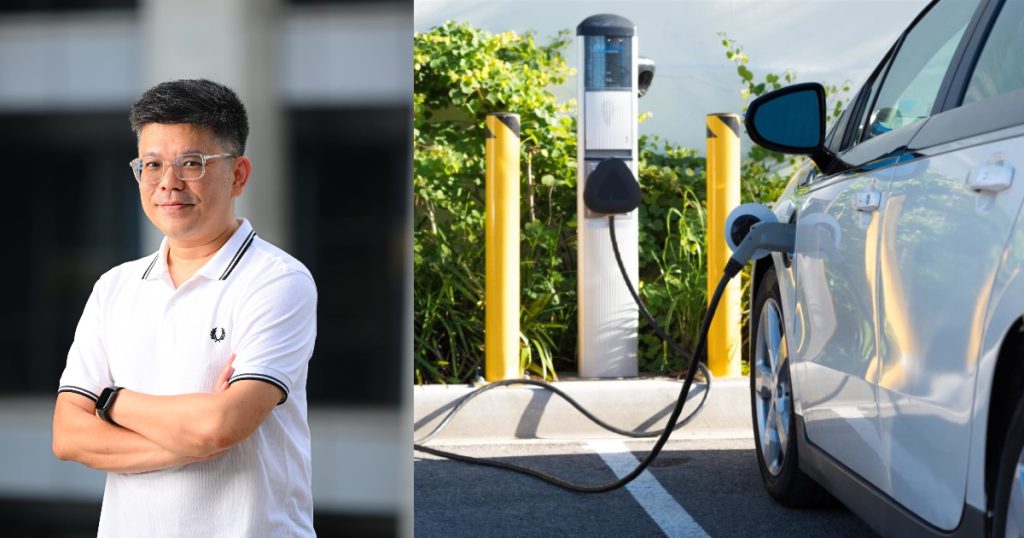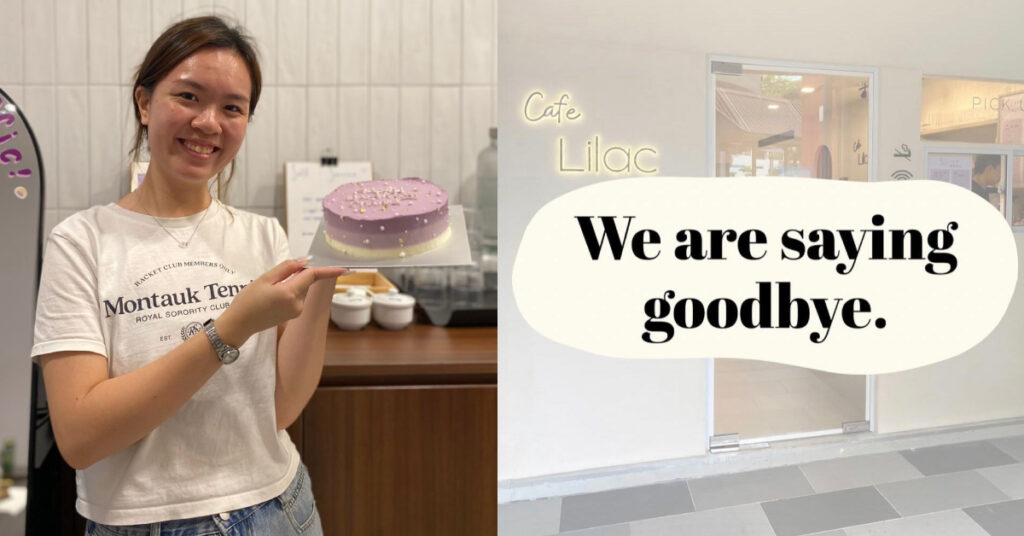In recent years, Singapore has been ramping up efforts to achieve its 2030 Green Plan, and this includes initiatives like encouraging the adoption of electric vehicles (EVs).
The government has expressed its ambition to phase out internal combustion engine vehicles (ICEVs) by 2040, but more needs to be done to aid this EV transition and address consumer hesitancy.
Some potential EV customers are discouraged to make the switch due to the lack of EV charging infrastructure. However, understanding that Singapore has stepped up its efforts in installing more EV charging stations islandwide, perhaps it is not the lack of EV infrastructure that is hindering customers, but rather, the lack of awareness of where these charging stations are.
In other words, a factor contributing to the consumer hesitancy in using EVs could simply be the inconvenience and inaccessibility of EV charging infrastructure.

Curve Khong realised that this was a gap that needs to be addressed in the industry, so he decided to come up with an app to encourage the use of EVs by simply informing users of the location of EV charging stations in Singapore.
Serving as both a parking lot and charging station pre-booking aide — PokeSpace — which got its name from the idea of “poking” a car into a parking lot “space”, aids in space management of parking lots and time management of motorists looking to find one.
According to Vas Jagarnath, the CMO of PokeSpace, their app is in the best position to assist the transition from ICE to EV user because the process of doing so contributes to the move towards carbon-neutral carparks.
Parking made sustainable
Emerging as a brand from Ochlos Holdings Pte Ltd, of whom Curve is the director and CEO of, PokeSpace seeks to disrupt the current parking landscape not only for EV users, but also for other car users.
For both petrol and EV drivers, the app allows them to find parking lot spaces, which they can book in advance. On top of this feature, EV users can also use the app to conveniently find and book EV charging stations as well.

The app — which is currently in the trial stages in the Jit Poh Building at Tanjong Pagar — leverages a new proprietary indoor “GPS” system that lets users navigate indoor parking lots with precision, allowing them to find their pre-booked indoor parking space or EV charger with greater ease.
While developing PokeSpace, Curve shares that there were a few key factors that they took into consideration.
Besides the app having to solve traditional parking and driving problems by reclaiming time for motorists and creating sustainable solutions to encourage people to go green, Curve said that they also focus on parking, mobility, and a driver’s last mile needs.
There are two main purposes of providing these services that align with the purpose of helping Singapore attain a smarter nation and greener future — to encourage EV usage by making it easier to find charging infrastructure, and to reduce idle driving times.
A competitive edge
However, there are other companies already offering similar booking services.
For example, SureReserve enables users to reserve a lot by activating an automated barrier in the carpark, which prevents other cars from entering the lot that can then be deactivated by the user when they’re there.

So what makes PokeSpace stand out from its competitors?
Besides fulfilling the reservation aspect of the parking ecosystem, Curve highlights that PokeSpace improves the entire end-to-end car parking experience.
From finding a lot, reserving a lot, finding one’s car, easing payments and keeping records of carpark expenditure, they plan to incorporate long run strategies with partners who are already part of the PokeSpace family in efforts to solve problems drivers face and reduce carbon emissions.
“[T]o future-proof the app for a sustainable future, we are tying our functions to EV charging as well. No other parking apps in the market have all the above functions”, expresses Curve.
Gaining support from investors
According to Curve, PokeSpace started out with internal funding before they went on to approach institutional investors. However, he finds that many of these investors were unable to understand their business model.
He reasons that car parking is a very niche and traditional business, so PokeSpace’s aim of disrupting the current business model for landlords in order to better serve users was met with scepticism and caution.
To eliminate these concerns, PokeSpace decided to prove themselves by presenting to investors and demonstrating to them their solutions, like what they have done here. “[W]e have had industrial players, partners and institutions come back to us with positive feedback and comments,” says Curve.
They also put in a lot of effort into their prototype testing, in which they surveyed a total of 100 drivers, landlords and car park owners to better understand their problems.

In terms of technicality, getting their app to navigate in a small car park was challenging. “[W]e needed to focus on fine-tuning the navigation systems to ensure that they were accurate and useful to drivers,” shares Curve.
Moreover, they faced challenges in developing an easy-to-use user interface (UI) and user experience (UX) for front-end users. Nonetheless, with the time and effort invested, Curve believes they have developed an excellent UI for the optimal UX.
Working with the government
To start the ball rolling for their initiative, PokeSpace takes on a two-pronged approach to engage with the government.
The first of which is to engage planners and policymakers at an early stage to convince them that PokeSpace’s functions are advantageous and in line with Singapore’s smart city solutions, and that data collected by PokeSpace could be valuable and useful for future city planning.
Secondly, PokeSpace looks to work with the government on various projects where they can provide a solution in helping public car parks become carbon-neutral with EV charging stations built in.
Having completed the testing for the iOS version of the app last month, and testing on the Android version completing by mid-September, PokeSpace is slated to launch in the fourth quarter of 2022.

Vas posits that they aim to manage 300,000 car park lots in three years, and are even considering expanding into other countries like Malaysia, Thailand, Vietnam, Taiwan and China, which have shown great interest.
To Curve, PokeSpace has a bigger purpose. He believes that at the end of the day, climate change is a problem that can only be tackled when government agencies, private companies and the general public work hand in hand to create meaningful solutions.
“It is only with this combined commitment that we can truly start making progress.”
Featured image credit: PokeSpace, Cape Business News










